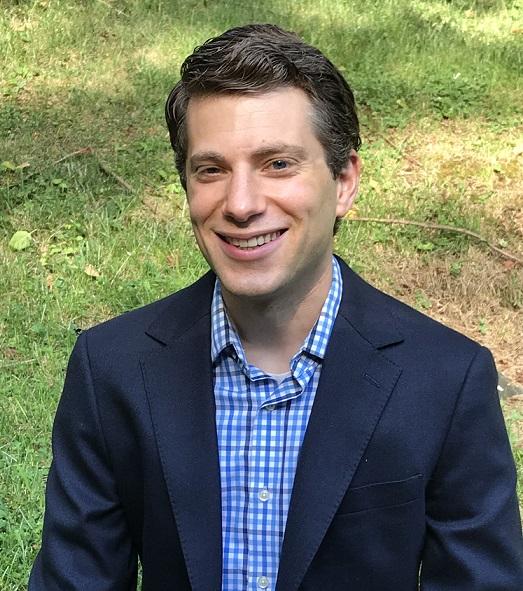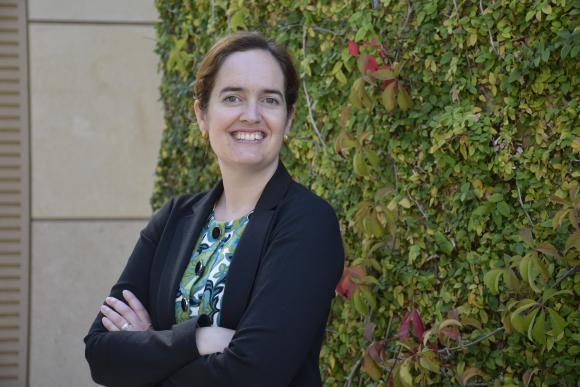Rutgers Law School in Camden welcomes two new professors this fall, Matthew Shapiro and Thea Johnson. Shapiro previously was an Associate Professor of Law at the Maurice A. Deane School of Law at Hofstra University and Johnson was an Associate Professor of Law at the University of Maine School of Law, where students voted her “Professor of the Year” for two years in a row.
In their own words, they share what it means to be teaching at Rutgers Law and the journey that brought them here.

Professor Shapiro has a doctorate in political theory in addition to his law degree.
Professor Matthew Shapiro: ““I’m thrilled to be joining the Rutgers Law community. As a preeminent center for the study of law and philosophy, Rutgers is an ideal intellectual home for me: In addition to my law degree, I have a doctorate in political theory, and my research delves deeply into issues in legal and political philosophy. I’m looking forward to working with Rutgers Law’s collegial and creative faculty and its committed and engaged students.
My research focuses on civil procedure, alternative dispute resolution, and private law theory. I draw on my training in political theory to analyze normative questions posed by legal doctrine that other methodologies tend to overlook. I’m especially interested in how the state uses procedural law to shape the resolution of disputes between private parties.
While my scholarship is theoretical, my teaching is practice-oriented, seeking to help students hone the analytical skills that will make them effective advocates."
His advice to students: “Use your time in law school to find your passion in the law—the area of legal practice that most excites you—but also to develop the fundamental analytical and problem-solving skills that will serve you well in an ever-changing legal environment.”
His legal journey: "I began my academic career as an Associate in Law (fellow) at Columbia Law School. Before entering academia, I was a law clerk to Judge J. Harvie Wilkinson III on the U.S. Court of Appeals for the Fourth Circuit and Chief Justice John G. Roberts, Jr., on the Supreme Court of the United States, as well as an associate in the appellate practice at Hogan Lovells in Washington, D.C."

Professor Thea Johnson will teach a course on plea bargaining this fall.
Professor Thea Johnson: “I’m so impressed by the Rutgers Law faculty, both the depth and range of scholarship and also the incredibly collegial environment among the faculty. I’m also excited to join a major research institution and eager for all the opportunities for cross-pollination with other departments at the university.
My recent scholarship has focused on plea bargaining – what does it look like, why is it so pervasive, and how can we combat some of the worse parts of plea practice. I am also the Reporter for the American Bar Association’s Task Force on Plea Bargaining, where I have the opportunity to tackle these issues on the ground.
This semester I’ll teach a course on plea bargaining, which combines a study of the doctrine and lots of negotiation skills practice. In the modern criminal system, an effective criminal attorney is one who understands negotiation strategies. In all my classes, I want students to emerge with a strong understanding of the law, but also an introduction to the skills needed for the practice of law. In my criminal law class, for instance, students also do a plea exercise, they write jury instructions and formulate closing arguments.”
Her advice to law students: “It goes without saying that the world is in crisis. Smart, dedicated law students and lawyers are always critical, but particularly at this moment. My virtual “door” is always open (and hopefully someday soon – my actual door!) to discuss criminal law and procedure, careers in the field, opportunities to make a difference, and the state of the world in general.”
Her legal journey: “I was a public defender at The Legal Aid Society in New York City and The Federal Defenders of New York. My experience as a trial public defender with Legal Aid shaped my career and drove me to write about the deep issues I saw in criminal law and practice, particularly the prevalence of coercive plea bargaining. I was also a Thomas C. Grey Fellow at Stanford Law School where I taught Legal Research and Writing, Federal Litigation and worked with the Stanford Criminal Justice Center. I had wonderful experiences at Stanford, including teaching a course at San Quentin prison and working on federal clemency petitions.”